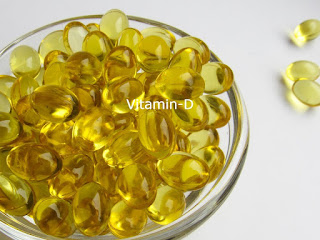Vitamin D is a fat-soluble vitamin that plays a crucial role in maintaining optimal health. It is also known as the "sunshine vitamin" because the human body can produce it when exposed to sunlight. However, many people do not get enough vitamin D from sunlight and food sources alone, leading to a deficiency. Vitamin D supplements are available in two forms, vitamin D2 and vitamin D3. In this article, we will explore the differences between vitamin D and vitamin D3, their efficacy, dosage, drug interactions, and the best way to get vitamin D.
What Is Vitamin D?
Vitamin D is a group of fat-soluble secosteroids that are essential for the body's calcium and phosphate absorption. There are two main types of vitamin D, vitamin D2 and vitamin D3. Vitamin D2 is synthesized by plants and can be found in fortified foods like cereals and orange juice. Vitamin D3, on the other hand, is produced in the skin when exposed to sunlight and can also be found in animal-based foods like fatty fish and egg yolks.
Vitamin D2 vs. D3
Both vitamin D2 and vitamin D3 can raise blood levels of vitamin D, but vitamin D3 is considered to be more effective at raising and maintaining blood levels of vitamin D than vitamin D2. Studies have shown that vitamin D3 is more potent than vitamin D2 in raising and maintaining blood levels of vitamin D.
Signs of a Vitamin D Deficiency
A deficiency in vitamin D can cause a variety of symptoms, including bone pain, muscle weakness, fatigue, and an increased risk of bone fractures. In severe cases, a vitamin D deficiency can lead to rickets in children and osteomalacia in adults.
Efficacy, Dosage, Drug Interactions and Warnings
Vitamin D supplements are available in various forms, including tablets, capsules, and drops. The recommended daily intake of vitamin D varies depending on age, gender, and health status. For most adults, the recommended daily intake of vitamin D is 600 to 800 IU per day. However, some people may need higher doses of vitamin D, especially those with a vitamin D deficiency.
Vitamin D supplements can interact with some medications, such as steroids, cholesterol-lowering drugs, and some anti-seizure medications. It is important to talk to a healthcare provider before taking vitamin D supplements, especially if you are taking any medications or have a medical condition.
Interactions and Precautions
Vitamin D supplements can interact with other supplements or vitamins, such as calcium supplements, vitamin A, and magnesium. Taking high doses of vitamin D can cause toxicity and lead to symptoms like nausea, vomiting, and constipation. It is important to follow the recommended dosage and talk to a healthcare provider before taking any supplements.
What's the Best Way to Get Vitamin D?
The best way to get vitamin D is through sunlight exposure, but this can be challenging, especially in the winter months. Vitamin D can also be obtained from food sources like fatty fish, egg yolks, and fortified foods like milk and cereal. Vitamin D supplements are also available and can be an effective way to get enough vitamin D.
Which Is Better: D2 or D3?
Studies have shown that vitamin D3 is more effective at raising and maintaining blood levels of vitamin D than vitamin D2. For this reason, many healthcare providers recommend vitamin D3 supplements over vitamin D2 supplements.
Summary
Vitamin D is a vital nutrient that plays a critical role in maintaining optimal health. Vitamin D is available in two forms, vitamin D2 and vitamin D3, with vitamin D3 being more effective at raising and maintaining blood levels of vitamin D. A deficiency in vitamin D can cause a variety of symptoms, and vitamin D supplements





No comments:
Post a Comment